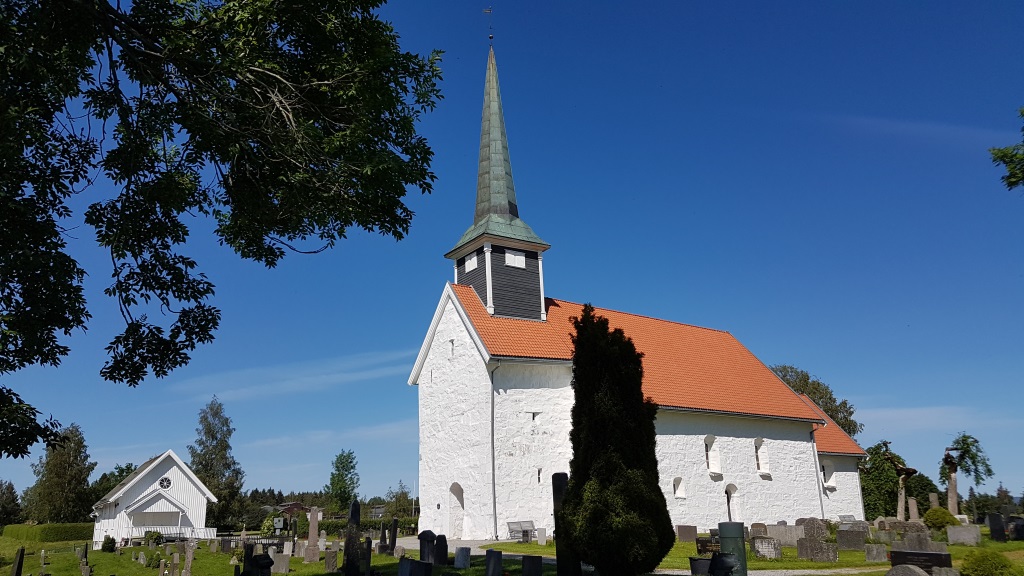Family history and genealogy
Here is info about Morten René's family history with some genealogy about Stroemsborg, aka Strømsborg, as it has been told by former family members.
Enebakk is known for forests and timber. When Norway was still under Danish rule (before 1814), the Collett family had an estate in Enebakk. The Flateby estate was owned by Collett from 1753 to 1828 and was Norway's largest estate. Collett's famous parties at this estate was dubbed by Henrik Wergeland as Collett's Hermitage, and in fact Wergeland's sister Camilla married Peter Jonas Collett. The Cavalier Building on the estate was later moved to Kirkebygda in Enebakk and used as a town hall, school, bank and social security office for Enebakk. Another well-known owner of the forest and timber industry was Holm Jølsen. He founded the match factory in Ekebergdalen in Enebakk. He was the father of the well-known author Ragnhild Jølsen.
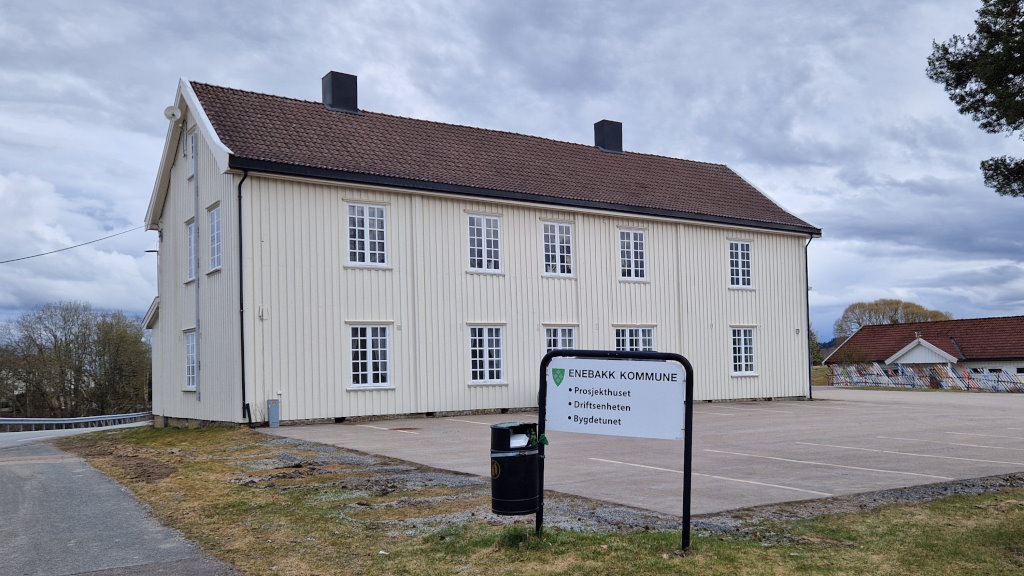
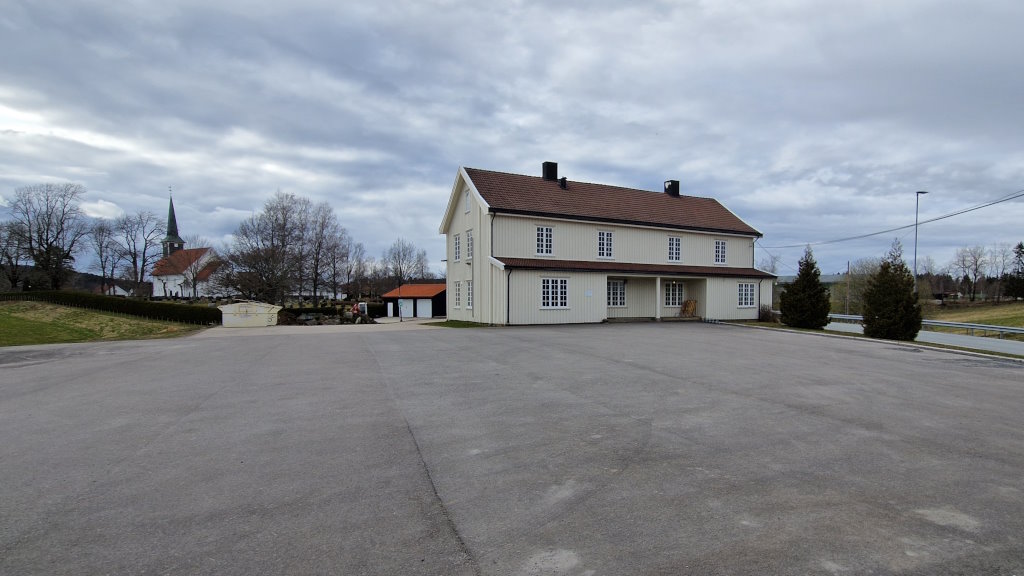
The Cavalier Building in Enebakk
My great-grandparents Rebekka Johannesd. and Ole Julius Svendsen [Dammyra] probably moved to Ekebergdalen in Kirkebygda precisely because of work at Holm Jølsen’s match factory (1866-86) at Ekeberg. Jølsen built a school, a bank and homes. One of the homes he built was lower Solbakken. The author Jens Ingvald Bjørneboe lived here in the 1960s, and my uncle and aunt in the 1970s. The building was later called Kalsegården. For those who have read the books by Ragnhild Jølsen, and Drømmen og hjulet by Jens Bjørneboe, it should be known that Jølsen's match factory burned down, and Enebakk's dream of its own railway literally went up in smoke. The match factory moved to Bryn in Oslo and an adventure was over. Later, my great-grandfather Julius started working at the oil refinery at Steilene in Oslofjorden.
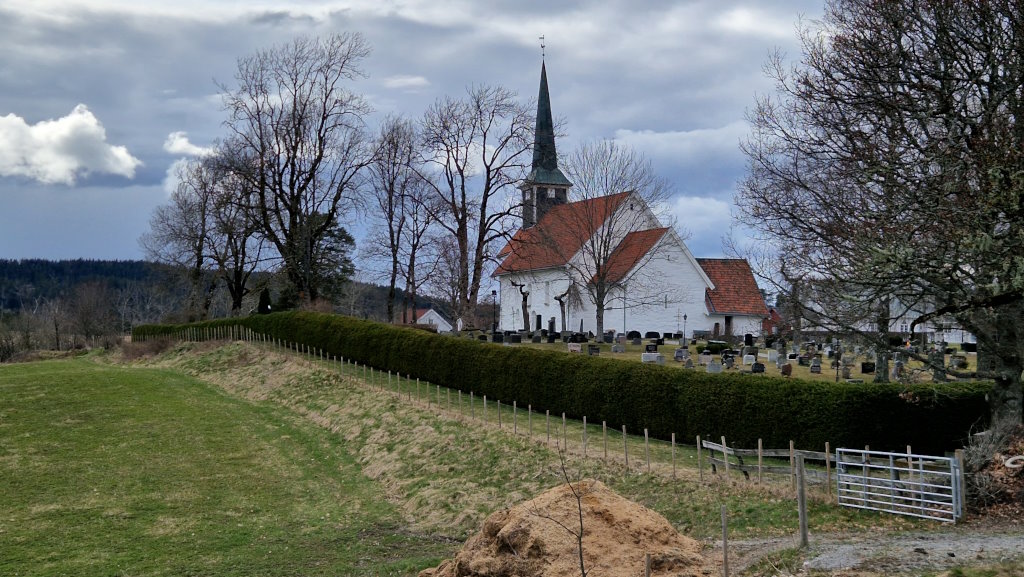
Kirkebygda, Enebakk
My great-grandparents Rebekka Johannesd. and Ole Julius Svendsen had seven children, who were born between 1883 and 1900. The youngest of them was my grandfather Arne Fritjof Strømsborg, who married my grandmother Gunda Johansen. She was the daughter of Bertha and Petter Johansen from Skura. Some of her relatives supposedly moved to America. My great-grandparents and several of their children lived at the Børter estate, and it was here that they adopted the surname Strømsborg. At the beginning of the 20th century, the Børter estate founded a power plant close to Børtervann and at the outlet of the Børter River at the lake øyeren. My great-grandparents' eldest son, Johan, entered into a partnership early on with the new power supplier in the village by both using electricity in his general store, and starting sales of light bulbs to those who used electricity from the power plant.
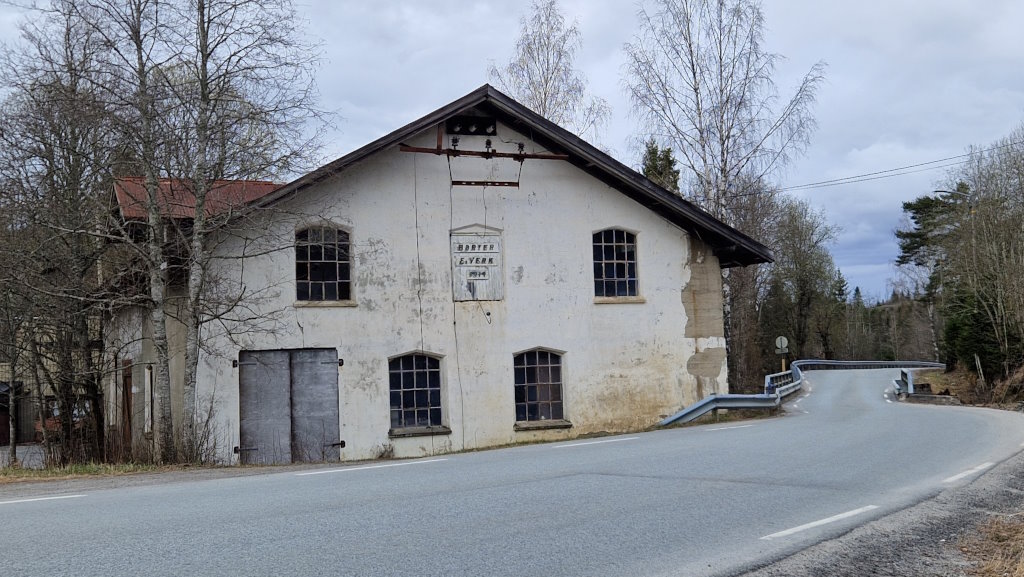
Børter power plant in Enebakk established 1914. There are a total of three old power plants in the Børterelva in Kirkebygda.
My grandparents had five children, the youngest was my father Bjørn Harald. Because my grandfather and my father were both the youngest in a large family, some of my oldest cousins are the same age as my parents. When my father was young, he floated timber during the summer holidays in Ekebergdalen. As he grew older he fell in love with the daughter of «the American» in the village, who is my mother Betsy, better known as Elizabeth Georgette (which is her real name). Her father was the founder of the modern social security office in Enebakk. My parents later moved to Oslo, but many of my cousins and third cousins still live in Enebakk.
Strømsborg can be written as Strömsborg in Swedish as well as Stroemsborg and The Stream Castle in English. The name probably comes from Sweden.
